
/ Blog
July 11, 2016
Past Meets Present: Shards of Our Heritage
Over several decades the City of Winnipeg, Heritage Winnipeg, and the Winnipeg Foundation saved shards (pieces of building facades) from numerous historic buildings that were unfortunately demolished. The intention behind saving the shards was that they would one day return to the hands of the people in our city.
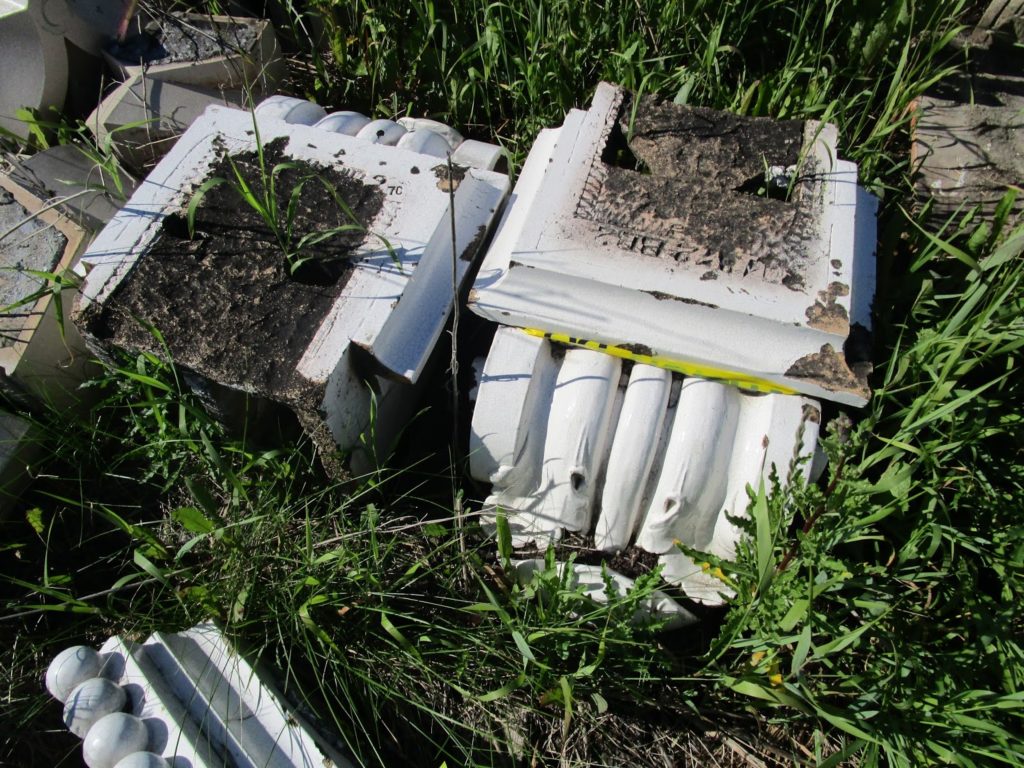 |
| Shards waiting for a new home. Source: Heritage Winnipeg. |
Heritage Winnipeg recently accepted ownership for the remaining inventory of shards from the city, on top of the collection we already had. Since acquiring the city’s remaining shards, we have been working hard to make sure these amazing remnants of history do not just sit away from public eye for the rest of their days, or end up in the landfill. We want to make sure they become treasured pieces of history. To make this desire become a reality, we partnered with Shelmerdine Garden Centre, who graciously offered their space to house the shards, and began selling them. The shards have been selling well, and generating media interest.
Shelmerdine Garden Centre has shards from four buildings: The Alloway & Champion Building, the Royal Alexandra Hotel, the Dominion Post Office, and the McIntyre Block. These shards are lovely pieces of history to look at, but they become even more valuable if you know the history behind the buildings.
The Alloway & Champion Building – 362 Main Street
William Forbes Alloway and Henry Thomson Champion both came to Manitoba in 1870. The two men originally worked in different industries, with Alloway working in retailing and freight hauling, and Champion working in a bank. Alloway began a loan business, and Champion became his business partner. From their partnership they built one of the largest private banks in Western Canada. Their head office was at 362 Main Street in the heart of Banker’s Row, where the Artis tower stands today.
Alloway and Champion was an unchartered bank, so they did not have to meet the same standards required of chartered banks. They capitalized heavily on purchasing First Nations and Metis land and in turn selling it to settlers. They opened a second location between Logan Avenue and Henry Street and catered to the immigrant community, with interpreters on site.
Designed by architect J. H. Cadham, the building was neo-classical in style. Plain columns and muted classical detailing were used to portray confidence and security. Large storefront windows allowed people passing by on the street to see the internal operations of the bank. The building had modern electric lighting, and steam heating. The building cost $13,000 to construct.
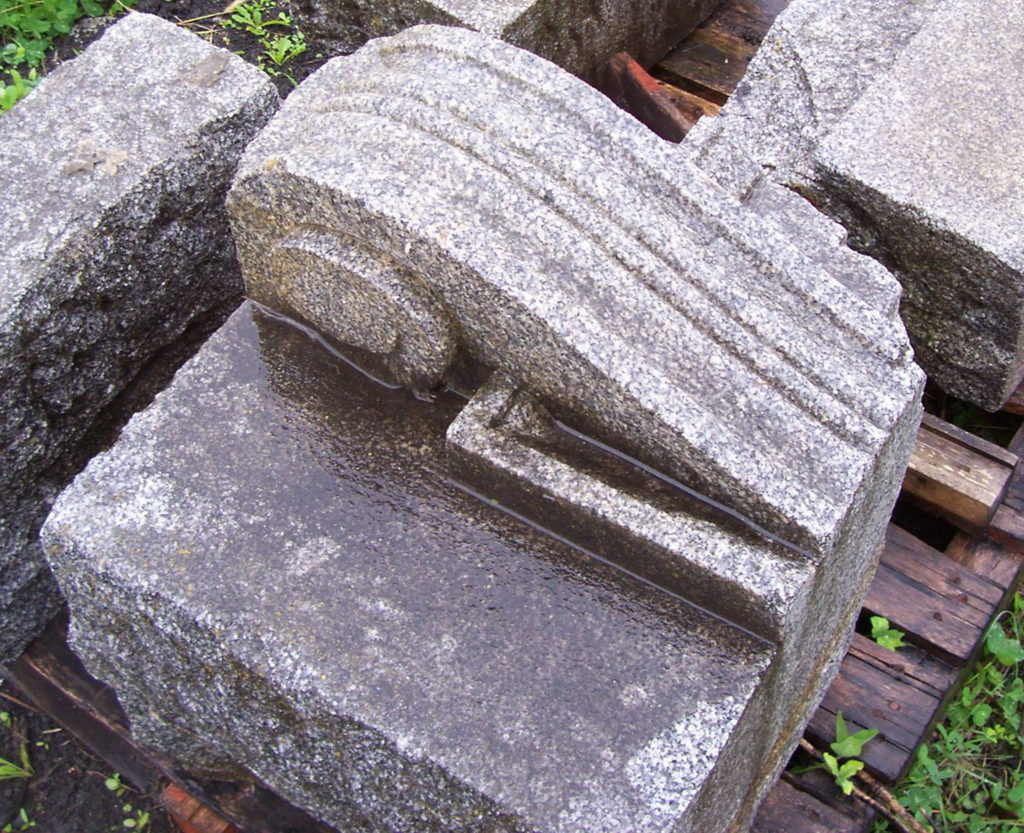 |
| A shard from the Alloway & Champion Building. Source: Heritage Winnipeg. |
The first Jewish lawyer in Winnipeg, Max Steinkopf, had his offices on the second floor. He specialized in corporate law, and his firm also aided the legal concerns of the city’s young, struggling Jewish community.
Alloway and his wife founded the Winnipeg Foundation in 1921. It was the first foundation of its kind in Canada. The Winnipeg Foundation used significant pieces from the Alloway & Champion Building to create the Alloway Arch, which was unveiled at the Forks on September 29, 2015. It is located between Union Railway Station and the Canadian Museum for Human Rights.
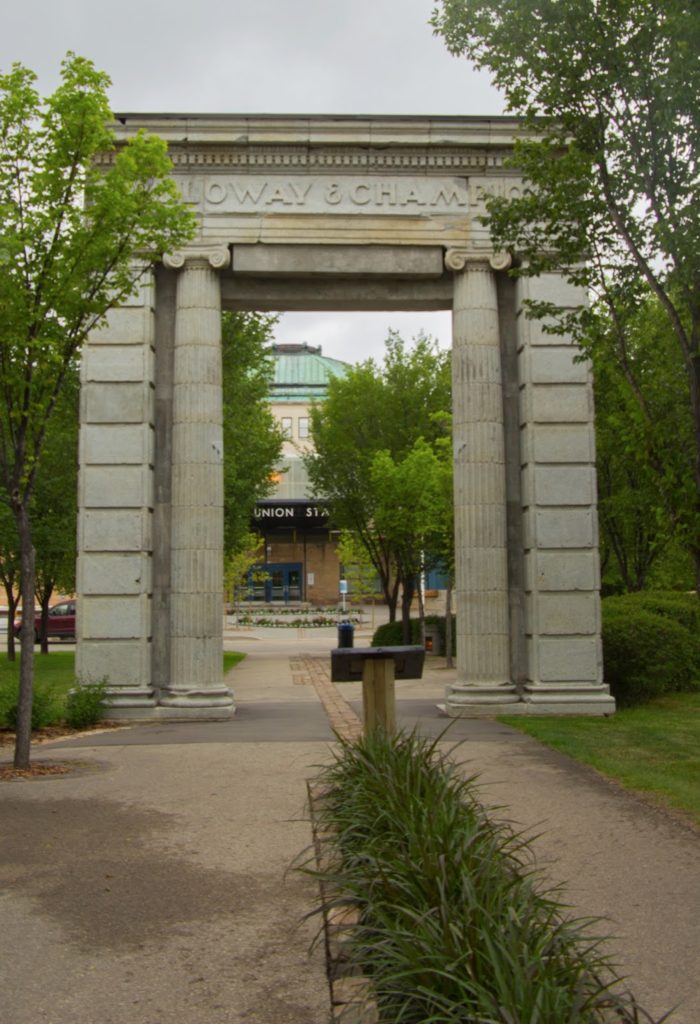 |
| The Alloway Arch at the Forks, erected in September 2015. |
The Royal Alexandra Hotel – Higgins Avenue
Montreal architects Edward and William Maxwell designed the Royal Alexandra Hotel for the Canadian Pacific Railway. It stood on the northeast corner of Higgins Avenue and Main Street, and was considered one of the finest hotels in all of western Canada.
Like many other construction projects in Winnipeg, past and present, “The Royal Alex” took years to get off the ground. In 1899, CPR executive William Whyte promised the hotel would have every modern luxury. It would reflect the dignity of Winnipeg and the railway. The hotel finally opened in 1906. It was built in the Beaux-Arts style, with Manitoba Tyndall stone.
The Fort Garry Hotel did not open until 1913, so for the first 13 years of its life the Royal Alexandra Hotel had no competition for the title of “finest hotel in Winnipeg.” It quickly became a social and economic hub of the city with the high volume of parties and conferences being held there. Even royalty stayed in the Royal Alexandra Hotel when they came to Winnipeg. King George VI stayed there in 1939, Princess Elizabeth stayed at the hotel twice, once in 1951, and once again in 1959 after she had become Queen Elizabeth II.
When the Royal Alexandra Hotel was constructed, the railway was really the only way to travel any distance. Railway traffic volume decreased dramatically in the 50s, and the Royal Alexandra Hotel began to see fewer and fewer guests checking in. Higgins Avenue and Main Street was considered a very undesirable location, and the Fort Garry Hotel had become the preferred hotel for high-class visitors to Winnipeg. The Royal Alexandra Hotel closed in 1967, and sat vacant until 1971 when it was demolished.
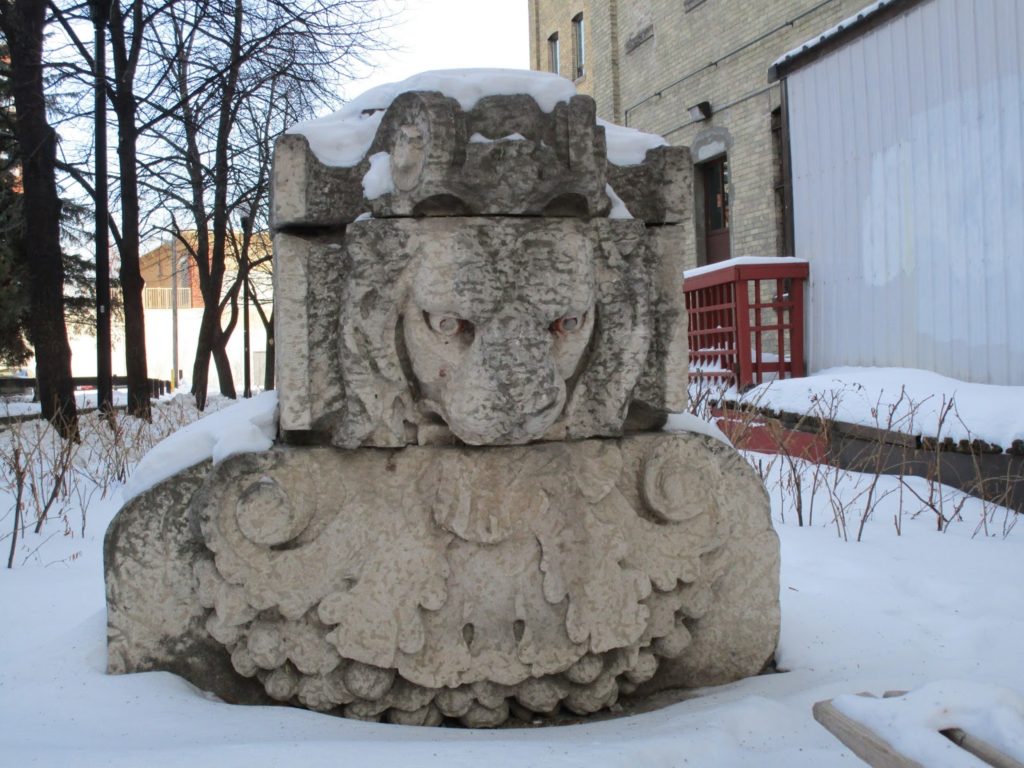 |
| A shard from the Royal Alexandra Hotel. |
Dominion Post Office – 236 Portage Avenue
Little information is available about the Dominion Post Office, which was Winnipeg’s third post office. It was built in 1908 at 236 Portage Avenue, and was demolished in 1962. It was a five-storey building built in the French Renaissance Style. It replaced the previous post office on the corner of Main Street and Bannatyne Avenue, and closed permanently in 1958 when the new post office on Graham Avenue opened and took its place.
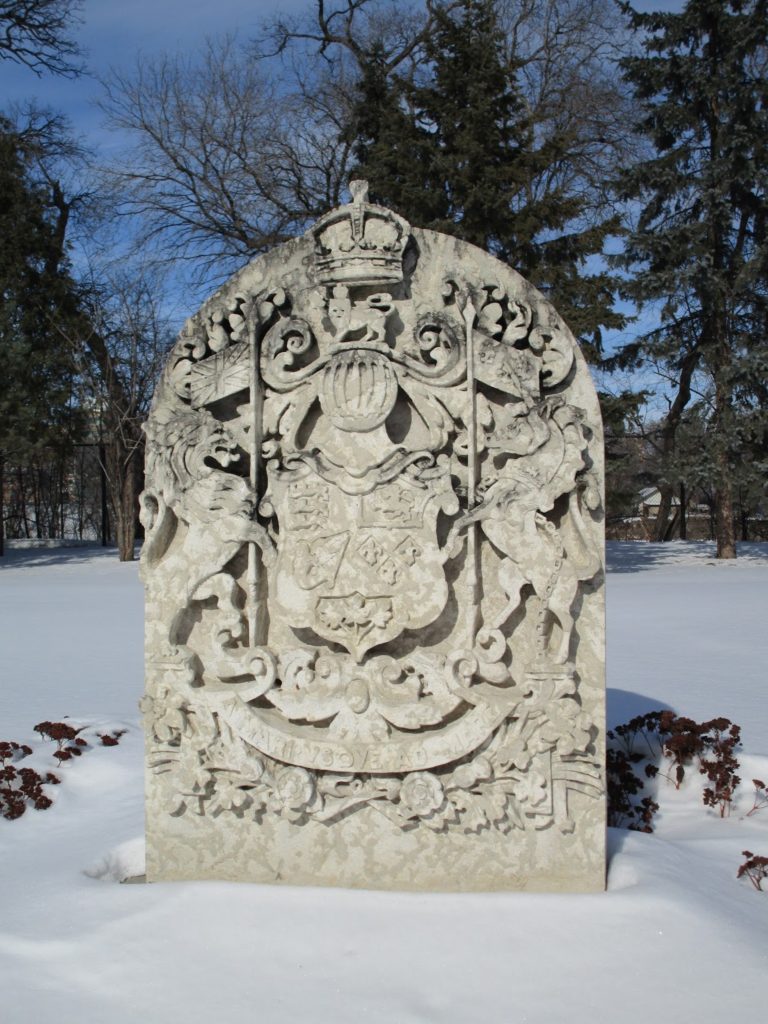 |
| A shard from the Dominion Post Office, now found in the English Garden at Assiniboine Park. |
The McIntyre Block – 416 Main Street
The famous McIntyre Block was actually the second building of that name in the same location. Alexander McIntyre ran a wholesale liquor business. He opened a saloon, and in 1881 he began buying up the property surrounding it. He began clearing the older and smaller buildings to make way for his own office building. He built a four storey red brick building, and continued to acquire property gradually and built two additions onto his building. Each of the three sections had different architectural features. Newspapers hailed it as “The largest and finest business space in Winnipeg.”
On February 2, 1898, a fire destroyed the entire building. Investigators were not able to uncover the cause of the fire, but it was not thought to have been an accident. McIntyre immediately declared that he would build a new building in the same location. He said it would be a “worthy monument,” to its predecessor.
The new building advanced rapidly, designed by architects Barber and Barber. It was 174 feet long by 91 feet wide, and five storeys tall. There were eight stores on the main floor, and offices on the top floors. The construction of the new building was covered heavily in the papers, and its completion was considered a triumph, and the most desirable office building in the city. Two more storeys were added on to the building in 1908. The building was in its prime, with the highest caliber of professionals and retailers wanting space in the building.
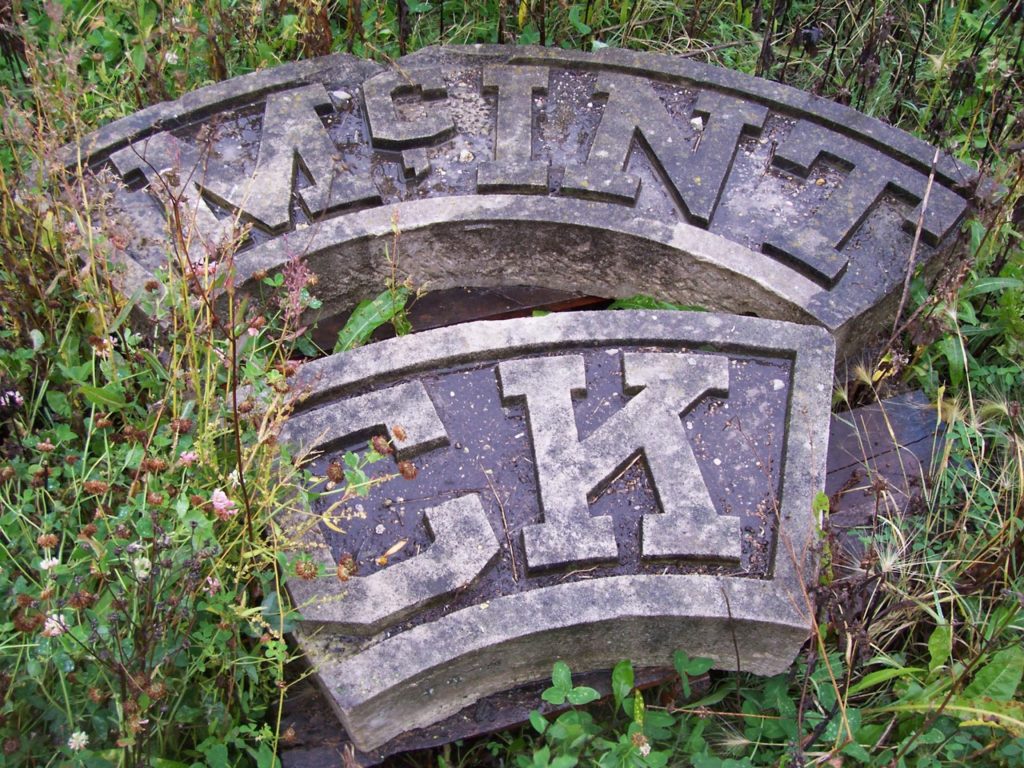 |
| Shards from the McIntyre Block. |
The depression hit the building hard. There was no more money coming in to complete the regular maintenance and repairs the building needed. Tenants could no longer afford to stay, and suites became vacant. More offices became vacant in the next decades, long after the depression had ended. It was like the building stayed locked in the Great Depression as the city moved on around it. Three floors of the building were closed in the early 70s, and the entire building was demolished in 1979, and the site became a parking lot.
Interested in purchasing a shard? Pallets of shards from the Thomson and Pope Building are now available! Put together a variety of pieces to create a beautiful heritage accent in any home or garden. Heritage Winnipeg also has a large shard from the Winnipeg Opera House that would be perfect for making a bench – visit our ad on Kijiji for more details. If you are interested in purchasing a shard, please call the Heritage Winnipeg office at 204-942-2663 or email us at info@heritagewinnipeg.com for more information or to make an offer. This is your chance to own a piece of Winnipeg’s history!
Written by Laura Wiens, on behalf of Heritage Winnipeg.





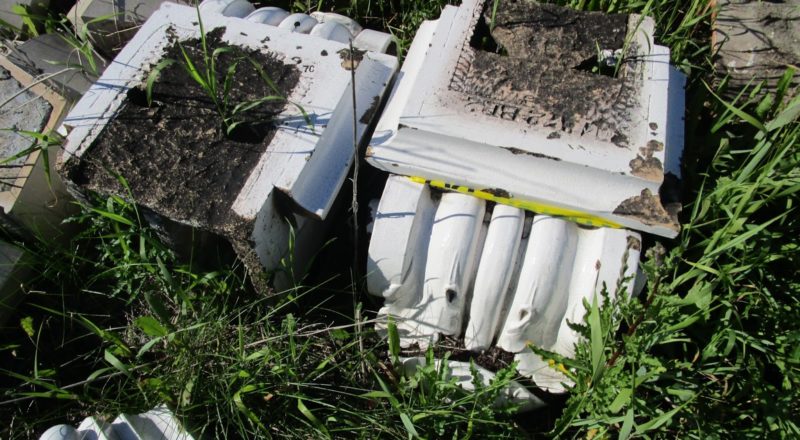

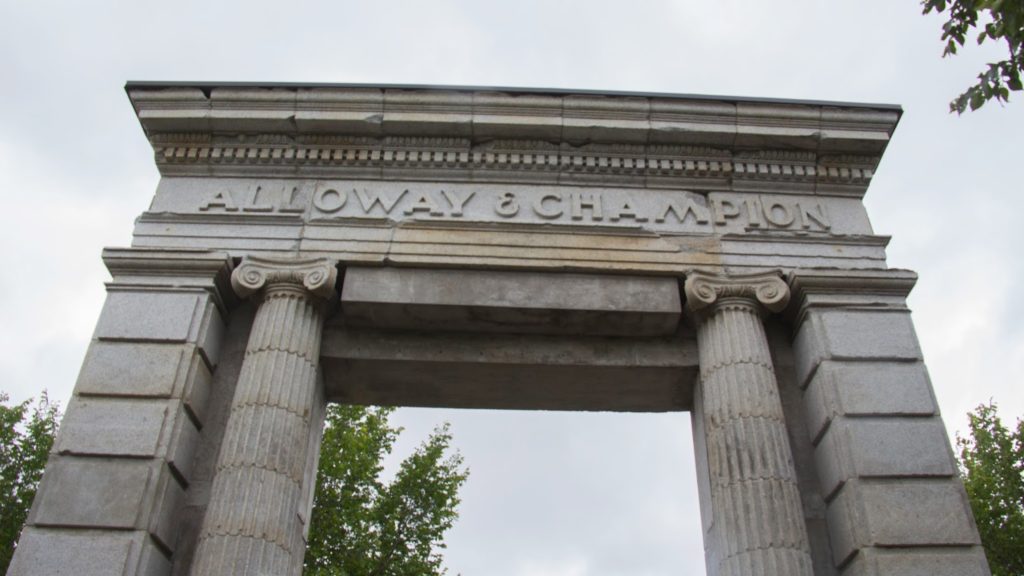
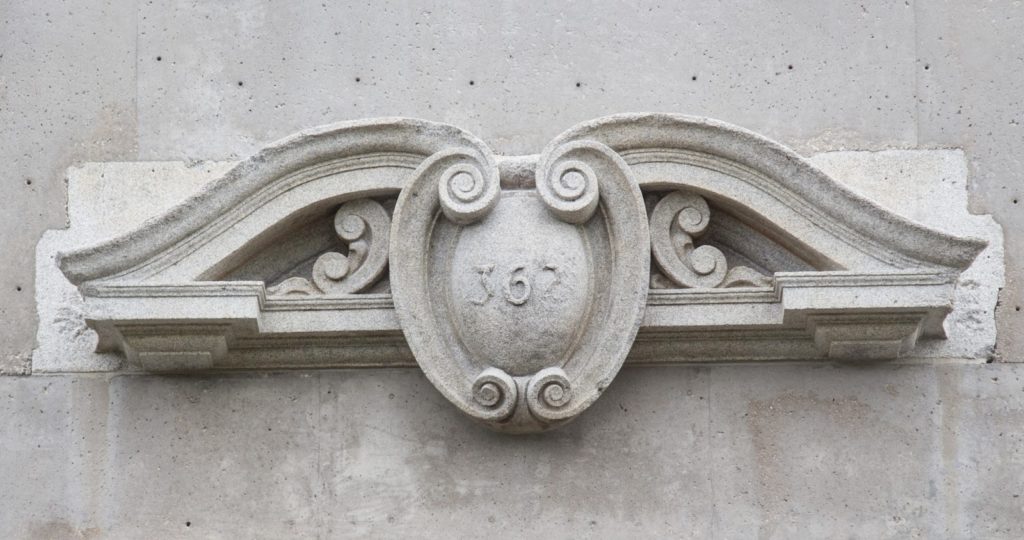
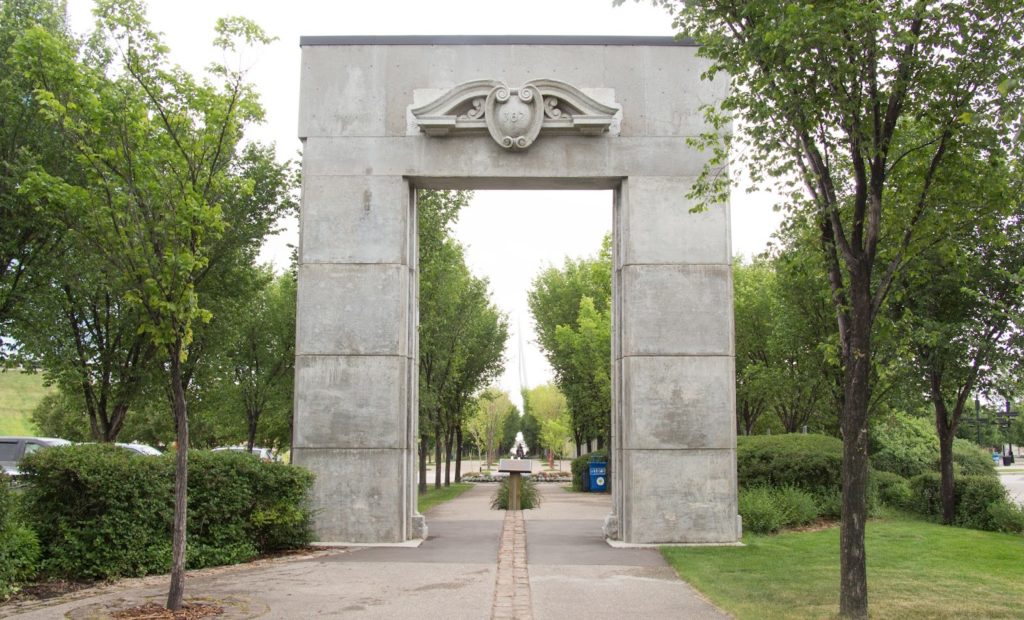
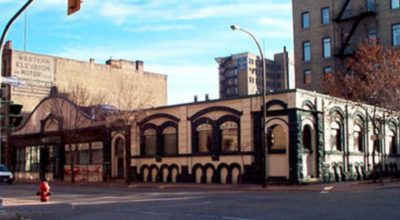

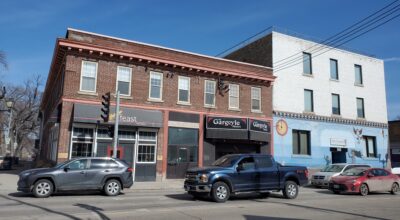
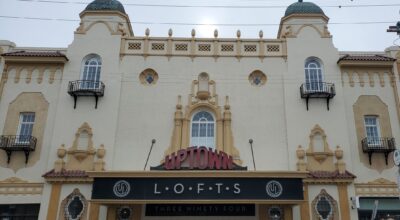


Like!! I blog frequently and I really thank you for your content. The article has truly peaked my interest.